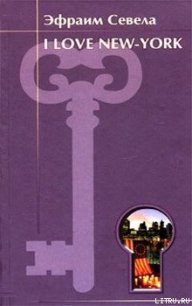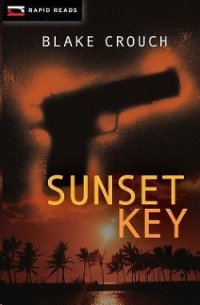Madame X - Wilder Jasinda (книги хорошем качестве бесплатно без регистрации .txt) 📗
“Chef Jean-Luc offers Flan Almendra, a traditional Spanish dessert for sir and madam, to finish the evening.”
“Thank you, Gerald. That will be all.”
“Of course, sir. And may I just say what an extraordinary pleasure it was to serve you this evening.” Gerald bows deeply and then departs.
Flan turns out to be somewhere between pudding and pie, with a crunchy almond crust. I eat it slowly, savoring it, forcing myself to be demure, a lady, and not devour it as I would wish to, were such barbaric behavior allowed.
Through it all, my brain is whirring. A single question, burning: Why? Why? Why?
I dare not ask.
At long, long last, there is nothing left to eat, and only the last inch of wine remains in my glass. My red was claimed long ago, and the bottle finished. I truly do not know how so much thick, pungent wine can be drunk so swiftly.
“X.” The voice, buzzing in my head. In my bones. It’s a little loose sounding. “You’ve been very patient this evening.”
I can only shrug. “It has been an enjoyable evening, Caleb. Thank you.”
“I’ve decided today is to be your birthday.”
I have no thought in my head, no capacity for rational thought. The pronouncement has left me utterly unhinged. “Wh—what?”
“Since we know nothing of you prior to our . . . meeting, I decided—rather belatedly, I do admit—that you require a birthday.” An easy shrug. “Today is July the second. The exact midpoint of the calendar year.”
I try to breathe. Summon words. Thoughts. Emotions. “I—um. Today is my birthday?”
“It is now. Happy Birthday, X.”
“How many years would it be?” I can’t help asking.
“The doctors, on that day, presumed you—with a high degree of accuracy, they told me—to be nineteen or twenty. That was six years ago, so I’m going to say that today is your twenty-sixth birthday.”
Six years. Twenty-six.
Puzzle pieces flit and float and flitter. Gazpacho Andaluz. Spanish red wine. Spanish cucumber salad. Spanish flan.
“Andaluz . . . Caleb, is that a place in Spain?”
An expression of curiosity. “Andalusia, yes.”
“Did you find something out about me? Is that what this about?” I cannot stop the question.
Cannot phrase it any more respectfully or politely. Curiosity flares in me. Hope, too, but just a spark, a fragile, easily extinguished, guttering pinpoint of light.
A pause, a hesitation. Tongue sliding over lips, roll of a shoulder, shifting in the chair. “Yes. A little something, at least. I had your DNA analyzed.”
“You did?” I blink, breathe in, wonder if it is normal to feel as if I have been somehow opened, pried apart, what little privacy I have invaded.
“Yes. When you were sleeping, the last time I visited you, I took a piece of your hair from your hairbrush, and swabbed the inside of your cheek. You sleep like the dead to begin with, and you were . . . very tired. You barely stirred.” A self-satisfied glint of the eye, not quite a smirk. “My scientists were able to trace certain markers in your DNA and determine with a surprising degree of accuracy where your ethnic heritage originates.”
I am breathless with anticipation—that phrase, it occurs in fiction quite frequently. But in reality, it is not an entirely pleasant sensation. “What—ahem.” I have to start over. “What did your scientists discover?”
A hand, manicured fingernails, trimmed cuticles, large and powerful and graceful, waving at the table. “Can’t you guess?”
“Spain?” I suggest.
“Precisely. They are clever fellows, those geneticists. They’re still working, comparing markers and whatever else it is they do, trying to narrow it down, get more specific results. They tell me with time they might be able to tell me a specific region of Spain, things like that. But for now, all we know is . . . you, Madame X, are Spanish.” Those eyes, dark, expressive, hard, hungry, raking over me. “You look it, too. I’ve long thought that might be it. My Spanish beauty.”
Clever fellows. Geneticists on the payroll. My scientists. Who has scientists on retainer?
“I would have had Jean-Luc prepare a traditional Spanish main course for us, but I thought that might be laying it on a bit too thick. Spanish food is also very rich, and you are not accustomed to such fare. I wouldn’t want to overburden your digestive system as well as your emotions all in one night, you know.”
“Yes, I see.” My brain supplied relevant-sounding words at the expected moment, but in truth I was numb, dizzy, spinning, and fending off what felt like an anxiety attack.
“Do you need a moment, X?”
I nod.
“Take a moment, then.”
I stood up and moved with great relief away from the table, away from the ring of candles, away from the huge and overwhelming presence. Away from the music. Deep into the shadows, to the window. Night had long ago fallen over the city, so now light came from countless yellow and white squares in neat horizontal and vertical rows across the horizon, from streetlamps far below, from red departing taillights and white approaching headlights.
I am Spanish.
I had your DNA analyzed. Such an easy phrase, so easily spoken.
What does it mean to me, to know I am of Spanish origin?
Nothing; everything.
My eyes prick, sting. My lungs ache and I am dizzy, and I realize I have been holding my breath. I blink and breathe. Such wrenching emotion over what? Knowing where in the world my unnamed and unknown ancestors came from? Weakness.
I’ve decided today is to be your birthday.
Another fact that feels both weighted with meaning and utterly devoid of it as well. A birthday?
A girl with dark hair walks by, dozens of stories below, on the opposite side of the street, holding her mother’s hand. It is much too far to see much else. They know their origins. Their family. Their past. A mother’s hand to cling to. A daughter to sing sweet songs to. Perhaps a daddy, a husband waiting for them.
“X?” A single letter, spoken in a murmur that would be a whisper for anyone with a smaller voice.
“Caleb.” An acknowledgment is all I can manage.
“Are you all right?”
I shrug. “I suppose.”
“Which means no, I think.” Warm palm on my waist, just above the swell of my hip. “What’s wrong?”
“Why?”
“Why what?” True confusion.
“Why have my DNA analyzed? Why tell me? Why give me an arbitrary birthday? Why bring me here for dinner? Why now?”
“It was meant to be—”
“Are you going to give me a Spanish name now, too?”
A fraught silence. I interrupted, spoke out of turn. In dark and gritty noir novels, someone would say, Men have died for less, and with the man behind me, it might just be true. It seems possible; I look down at the hand on my waist. It looks capable of violence, of delivering death.
“Your name is Madame X.” A harsh rumble in my ear. “Don’t you remember?”
“Of course I do.” When one possesses only six years’ worth of memories, each one is crystalline.
“I brought you to the MOMA, the day they released you from the hospital. All of the museum at your disposal, and you spent the whole time in front of two paintings.”
“Van Gogh, Starry Night,” I say.
“And John Singer Sargent’s Portrait of Madame X.” Another hand on me, this one lower, below my hip bone, where it becomes thigh. Pulling me backward, taut against a hard chest. “I didn’t know what to call you. I tried every name I could think of, and you’d just shake your head. You wouldn’t speak. Couldn’t really, I guess. Had to roll you around in that wheelchair, remember? Hadn’t relearned to walk yet. But you pointed at that painting, the Sargent. So I stopped, and you just stared at it and stared at it.”
“It was the expression on her face. It looks blank, at first. She’s in profile, so you’d think it might be hard to tell what she’s thinking. But if you look closely, you can see something there. Beneath the surface, maybe. And the curve of her arm. It looked strong. She’s so delicate, but . . . that arm, the one touching the table, it’s . . . it looks strong. And I felt weak, so helpless. So to see such a delicate-looking woman with something like strength? It just . . . spoke to me, somehow. Reassured me. Told me that maybe I could be strong, too.”



